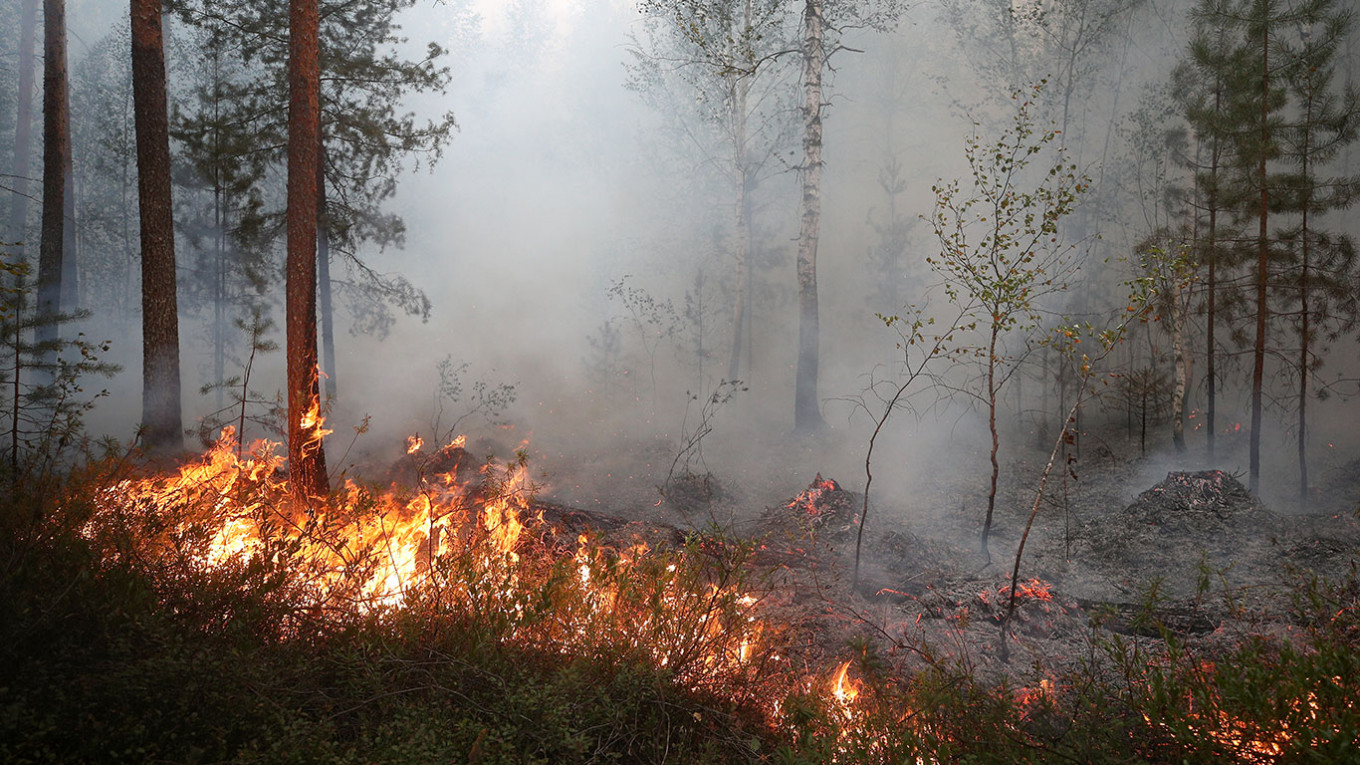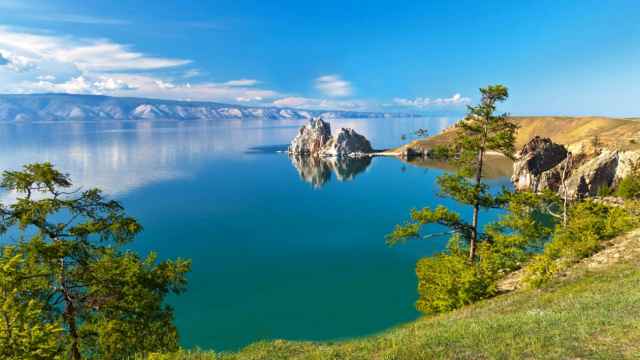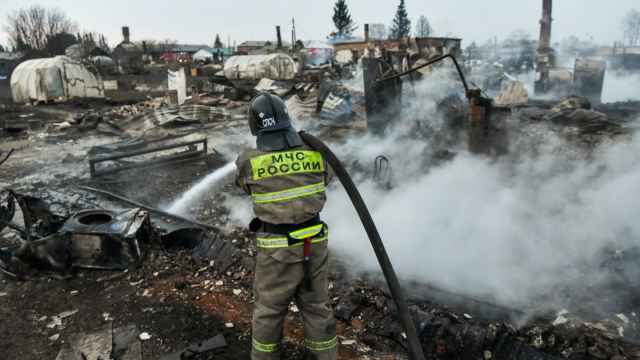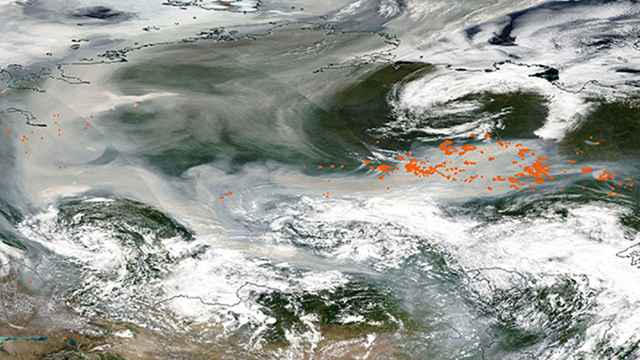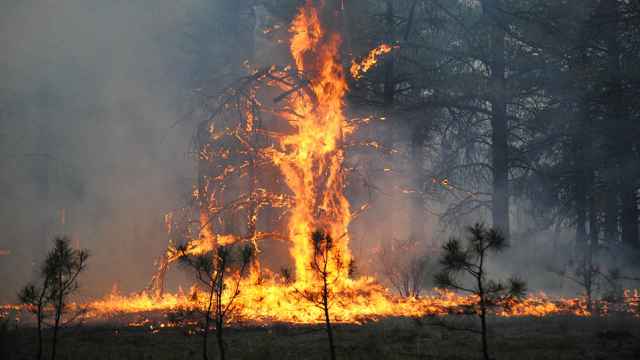Russians are co-opting a pro-war hashtag to raise awareness of fast-spreading wildfires in Siberia and highlight the government’s inaction toward the crisis.
The current area of forest fires burning across Russia is twice as large as that of the same time last year, the Kommersant business daily reported this week, citing Greenpeace Russia. Fourteen regions of Russia have declared special fire regimes, with the most severe fires seen in Siberia and the Far East.
Russian Twitter users are now using the hashtag #своихнебросаем (“we aren't leaving our people”) — which was first used by state-funded media to rally support for the Russian invasion of Ukraine — when they tweet photos and videos of the fires.
In the Novosibirsk region, 433 forest fires have been extinguished, leading to smog enveloping Russia’s third-largest city of Novosibirsk.
In the city of Krasnoyarsk, health authorities found that fine particle concentrations in the air exceeded levels considered hazardous to human health due to smoke from wildfires.
Nearly 300 grass fires were reported in the Omsk region of western Siberia, with smoke from the fires reaching the city of Tyumen 625 kilometers away.
“Not far from Omsk, more than 100 hectares of pine forest are on fire along the Cherlak highway. The haze and smoke from fires can be seen for tens of kilometers, including in Omsk. Meanwhile, the governor of the region holds [pro-Putin] festivals, and it’s not clear at all what the regional Emergency Situations Ministry is doing,” the Omsk civil association account tweeted.
Siberia has fallen victim to increasingly devastating wildfires in recent summers as historic drought conditions and anbormally high temperatures have turned the region's vast swathes of forest into a tinder box.
Russian officials have linked the increasingly severe fires to climate change.
A Message from The Moscow Times:
Dear readers,
We are facing unprecedented challenges. Russia's Prosecutor General's Office has designated The Moscow Times as an "undesirable" organization, criminalizing our work and putting our staff at risk of prosecution. This follows our earlier unjust labeling as a "foreign agent."
These actions are direct attempts to silence independent journalism in Russia. The authorities claim our work "discredits the decisions of the Russian leadership." We see things differently: we strive to provide accurate, unbiased reporting on Russia.
We, the journalists of The Moscow Times, refuse to be silenced. But to continue our work, we need your help.
Your support, no matter how small, makes a world of difference. If you can, please support us monthly starting from just $2. It's quick to set up, and every contribution makes a significant impact.
By supporting The Moscow Times, you're defending open, independent journalism in the face of repression. Thank you for standing with us.
Remind me later.


